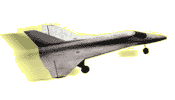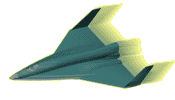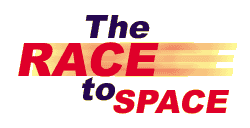 |
 |
 |
|
|||
|
The Race to Space Ten million dollars could be yours if you can organize the following tasks: design and build a re-usable rocketplane, launch at least three people to the edge of space, enjoy a few minutes of weightlessness if you want, return safely and repeat the feat within two weeks, all without government support. Erik Lindbergh says doing that will win you the "X-prize." Lindbergh is a director of the X-prize Foundation and a grandson of the early aviator, Charles Lindbergh.
Lindbergh: "My grandfather flew across the Atlantic in 1927 to win a prize. In fact, prizes drove the development of aviation. We find ourselves in a very similar time with space travel." 
The X-prize was established by a St. Louis businessman, Peter Diamandis. Diamandis says the idea came to him while reading Charles Lindbergh's book "The Spirit of St. Louis." It describes how in 1919, New York hotel owner Raymond Orteig posted a $25,000 prize for the first pilot to fly non-stop between New York and Paris. Six men would perish in various attempts before airmail pilot Lindbergh succeeded. His accomplishment somehow captured the popular imagination like never before.
Radio announcer: "Lindbergh! Lindbergh is coming down the gangplank, walking slowly, hat in his hand. Dignified. A darn nice boy." Within a matter of years, Trans-continental and then Trans-oceanic airline travel literally took off. Aviation evolved from the province of flying aces and barnstormers into a means of transportation for the masses. This now is what Lindbergh's descendants and some visionary business types want to repeat, on a cosmic scale. Erik Lindbergh is a wood sculptor by trade. His shop sits in a clearing on the western shore of Puget Sound in Washington State. Lately his work has been infused with images of fantastic rockets and space planes.
Lindbergh: "This is NASA's ship after it's been through the worm hole to the Gamma Quadrant." From conversations with astronauts, Lindbergh believes flying to space would be a transformative experience for tourists and a handy, if expensive, way to travel long distances. His friend, the St. Louis businessman, is also frustrated by the slow development of commercial space travel. Peter Diamandis couldn't be more pleased, it seems, with the space race his prize has spawned.

The "Ascender" space cruiser looks like a cross between a Lear jet and a fighter in this video simulation from Bristol Spaceplanes. The British company is one of 17 entrants from four continents registered for the X-prize. However, all of the competitors are having problems raising the necessary venture capital. Winning the X-prize would reap a bonanza of publicity, but the $10 million payoff is small compared to the estimated hundreds of millions of dollars it'll take to complete design, construction, and launch. But Bristol Spaceplanes president David Ashford remains optimistic.
Ashford: "Technology has got to the stage now where a small, start-up company can make a useful spaceplane. Once that's been done and we've demonstrated the opportunities, then the big companies, big business will follow very rapidly." A Virginia tour operator is already taking reservations to go into space with whichever company succeeds first. The trip will cost you $90,000. Erik Lindbergh is content to let another family pioneer this flight, although he's as eager as anyone to blast off when the technology is proven.
Lindbergh: "As far as a timeframe for someone to win the prize, we think that will be won around 2002, 2003. So, within a couple of years. And hopefully within a few years after that, we will have the start of a thriving space tourism business." In Seattle, I'm Tom Banse for The Savvy Traveler.
|
 | American Public Media Home | Search | How to Listen ©2004 American Public Media | Terms of Use | Privacy Policy |
